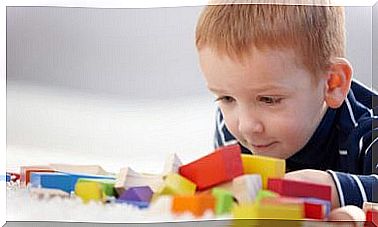The Role Of Parents In Eating Disorders

These things do not happen to their children, it is impossible for them to suffer
On the other hand, adolescence is a stage that can be very difficult. The changes that young people undergo can cause conflicts both internally and in the environment, mixing themselves on many occasions and projecting that feeling of lack of meaning and location so characteristic of this stage. Screams, fights, lack of understanding, phrases like “that’s nonsense as a teenager” and fed up with a sustained instability over time, together with the social pressure that exists in many cases, causes many eating disorders to be diagnosed late.
Family dynamics and the role of parents in eating disorders
There are several studies that have analyzed the influence of family dynamics – and not just the role of parents – in eating disorders. Munichin et al., For example, in their publication Psychosomatic families: Anorexia nervosa in context, tried to find common patterns in those families in which at least one case of anorexia nervosa had been recorded.
The results shed light on the family dynamics that used to dominate. Some of them were insecure attachment patterns, overprotection, rigidity, lack of communication and the fact of involving children in parental conflicts.

Similarly, another study by Selvini, Self-Starvation, found that families with an anorexic daughter had the following characteristics:
- Communication problems, not listening and rejecting the other’s communication.
- Parents assume neither leadership nor responsibility.
- There are important shortcomings in the relationship between the parents.
- The disappointment and unhappiness of the parents’ relationship is hidden behind the ill-crafted facade, so that the children perceive and take part in the relationship problems.
These studies have focused on anorexia; however, perhaps the information they have brought to the table could be applicable to other types of disorders, such as bulimia. Thus, family dynamics and the role of parents in eating disorders are presented as very important factors. However … is it the only one?
Why do eating disorders occur?
It would be a mistake to hold the family alone responsible for the eating disorders suffered by young people. Although, as we have seen, family dynamics and the role of parents in eating disorders is very important, it is no less true that young people can also suffer from an eating disorder in a family in which the aforementioned conditions do not exist..
Another risk factor, in turn common in many young people, is the lack of good self-esteem . What’s more, low self-esteem, especially when related to body image, may be the factor that weighs the most in the development of the disorder.
Disorders such as depression or bipolar disorder can cause the young person to use food as a reward or punishment in a systematic way; finally composing a very harmful diet for his body, based on periods that alternate large binges with strong restrictions.

The role of parents in eating disorders can be very difficult, as adolescents can withdraw into themselves, not communicate and not listen to reasons. However, scolding them, punishing them and not understanding what is happening to them can make the situation worse. Therefore, it is important to know how to act in these cases.
The great support of parents in eating disorders
Parents can be a great support for any young person who is going through an eating disorder, although it can also be the weight that ends up sinking them in case they do not act in the right way. They are the ones most likely to help because they are usually what their children’s patterns know best, so they are the closest to detect any changes that may occur, in this case in diet. One way or another, when in doubt, it is best to go to a professional.
Once the evaluation has been carried out and the diagnosis has been established, in the event of an eating disorder, feelings of frustration and helplessness are normal. Parents may feel that there is no progress, that it is very slow, or that there are even setbacks. They may even blame their child, without understanding that the one who is probably having the worst time is him.
On the other hand, it is not uncommon for parents to have to endure continuous rejection and rudeness, since their child is often not receptive to the measures that are taken for their good. Hence the importance of not only directing together with the professional, but also of explaining; avoid being tempted to treat someone like a child when they are no longer a child.

Parents need to stick together, support each other, and express their emotions. Also, it is important that they follow the guidelines established by the professional or change professionals in case of not trusting them. The prohibited thing in any case is to try to get out of the situation autonomously, since in most cases the parents do not have the knowledge or the necessary resources to do so, no matter how much they do not lack the will and desire.
Another important guideline for parents who have to help a child with an eating disorder is not to make the disorder the center of everyone’s life. It is important, yes. But the young man with the problem is much more than the problem itself. He is someone with dreams, with hopes, with feelings originating in another place … Not minimizing the “rest of life” is in fact many times the impulse to get out of this situation.
The opposite stance is not in the parenting guidelines either. When the young person does not comply with one of the established guidelines, a dialogue must be opened and closed, so that it does not repeat itself. If necessary, this exchange should be corrective, but also motivating. The objectives are twofold: to get the adolescent’s commitment and for him to leave the exchange with sufficient motivation to fulfill it. We cannot allow him to give up, it is not an option.
As we have seen, the role of parents in eating disorders is very important. They are a cornerstone for the future of their child and are forced, due to the complexity of the challenge they face, to ask for help from a professional. First for the evaluation, and if the suspicions are confirmed, for the intervention. Even with the help of a professional it is a long process, which requires both patience and intelligence, as much love as will. That said, from here send a lot of encouragement and strength to those people who are going through moments like the ones we have related.









